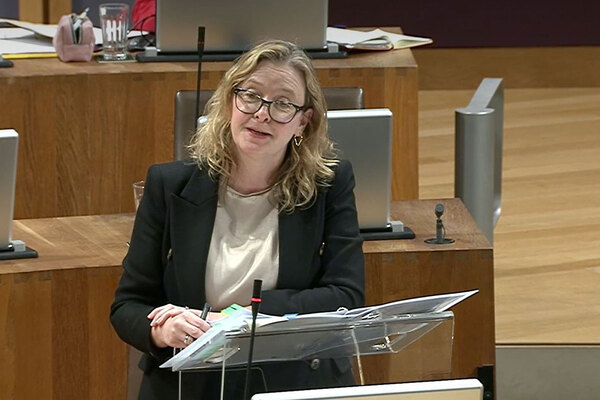You are viewing 1 of your 1 free articles
Key details of Procurement Act still missing as sector welcomes delay to law
The sector has welcomed a delay to the Procurement Act 2023 coming into force until early 2025, while vital details of the legislation are yet to be unveiled.
The full set of technical guidance for the act is now expected to be published by the end of November.
One director called the law the “biggest change to public procurement regulations in a generation”, which therefore “needs to be right”.
The government announced in September that the implementation of the act would be delayed by four months.
Initially scheduled for 28 October 2024, it will now come into force on 24 February 2025.
The government said the delay was to give it time to produce a new National Procurement Policy Statement (NPPS) that is “aligned” to its priorities and creates a “mission-led” regime.
“While the delay does allow more time for stakeholders to familiarise themselves with the new regime, we also understand this may impact procurements scheduled to commence under the new act,” the government said in a statement.
Jenny Howarth, head of procurement at Torus, said the delay “seems sensible”.
“We are still awaiting a full set of technical guidance and templates and are yet to have access to the new central digital platform that we and our suppliers will need to use to comply with the requirements of the act,” she added.
Last week, the government launched a stakeholder survey to help inform the new NPPS, which closes on 4 November.
Organisations planning to start procurement between October and February will need to decide whether to go ahead under the existing legislation or delay the process until next year.
The new legislation will overhaul procurement in the UK, with the Conservative government describing it last year as “one of the largest shake-ups to procurement rules in this country’s history”.
The act promises greater transparency over procurement pipelines and suppliers. All procurement notices will have to be published on a new public central digital platform and supplier performance must be measured for contracts over £5m.
It also creates a procurement review unit tasked with protecting public procurement “from suppliers that pose unacceptable risk”.
The government announced last month that it would write to all the companies found to have contributed to failings that caused the Grenfell Tower fire and prevent them from being awarded government contracts in future.
Clare Tetlow, senior procurement manager at Procure Plus, said the announced delay was not “a complete surprise” due to the new government and “the renewed focus on the ability of companies whose names are associated with injustice and tragedy to be continually awarded public contracts”.
“It will be interesting to see how the new government and the delayed implementation will result in further changes in how public procurement can contribute to value for money, accountability and societal good,” she added.
Contracting authorities, including social housing providers, will also have more flexibility over how they negotiate contract terms.
The social housing sector has broadly welcomed the postponement. Peter Francis, group executive director of operations at Fusion21, said the delay “offers a valuable few extra months for organisations to refine their processes and prepare for the changes ahead”.
“We would encourage organisations to use this time to prepare, plan and ensure processes are efficient and ready for the new regulations,” he said.
Mr Francis added that “while the new act will fundamentally transform how the public sector purchases goods and services, it is not something to fear”.
John Wallace, director of procurement at Clarion Housing Group, said: “Housing association procurement leads have worked hard to prepare for the new act.
“The short delay will ensure the cabinet office’s central digital platform can be completed and fully tested while the registration of contracting authorities and suppliers on to the system can be commenced.”
Guy Stapleford, head of consultancy services at Procurement for Housing, advised the sector to use the extra time to test new systems and processes.
He said: “There will be many colleagues across your housing organisation with new responsibilities around managing contracts and transparency. Use these few additional months to check in with them and bring them along on the journey.”
Alan Heron, director of procurement at Places for People, added: “This is the biggest change to public procurement regulations in a generation and therefore it needs to be right.”
Sign up for our regulation and legal newsletter
Already have an account? Click here to manage your newsletters










